The Merits of FinTech and RegTech: Leveraging Artificial Intelligence for Financial Innovation and Regulatory Compliance
FinTech and RegTech, the convergence of financial technology and regulatory technology, have emerged as transformative forces in the financial industry. FinTech revolutionizes the way financial services are delivered, while RegTech addresses the challenges of regulatory compliance. Both domains offer numerous merits, and when combined with artificial intelligence (AI), they unlock even greater potential for financial innovation and streamlined regulatory processes. This essay explores the merits of FinTech and RegTech and delves into the role of AI in this space.
I. The Merits of FinTech:
Enhanced Access to Financial Services: FinTech has facilitated financial inclusion by leveraging digital platforms and mobile technologies. It enables individuals and businesses to access banking services, make payments, and obtain loans, overcoming barriers of geography and traditional banking infrastructure.
Improved Customer Experience: FinTech solutions prioritize user-centric experiences, offering convenience, personalization, and real-time services. Through intuitive mobile apps, seamless digital payments, and personalized financial recommendations, FinTech enhances customer engagement and satisfaction.
Increased Efficiency and Cost Reduction: Automation and digitization within FinTech streamline financial processes, resulting in greater efficiency and reduced costs. Tasks like account management, loan origination, and wealth management can be executed faster and with fewer resources, resulting in operational savings for financial institutions.
Innovation and Disruption: FinTech fosters innovation by challenging traditional financial models and introducing disruptive technologies. It has paved the way for peer-to-peer lending, crowdfunding, robo-advisors, and cryptocurrencies, revolutionizing areas such as lending, investment, and payments.
II. The Merits of RegTech:
Streamlined Compliance Processes: RegTech simplifies and automates compliance processes, reducing the manual effort and costs associated with regulatory obligations. It offers advanced analytics, data management, and reporting tools that enable organizations to efficiently monitor, analyze, and report on compliance activities.
Enhanced Risk Management: RegTech empowers organizations to proactively manage risks by leveraging AI and data analytics. It assists in identifying patterns, anomalies, and potential compliance breaches, allowing timely intervention and risk mitigation strategies. RegTech also aids in fraud detection and prevention.
Timely Regulatory Reporting: RegTech solutions automate the collection, validation, and submission of regulatory reports, ensuring accuracy, completeness, and timeliness. By integrating with multiple data sources and utilizing AI algorithms, RegTech minimizes errors, improves data quality, and enhances reporting efficiency.
Regulatory Intelligence and Adaptability: RegTech harnesses AI-powered data analytics to monitor regulatory changes and interpret complex requirements. It assists organizations in staying up to date with evolving regulations, ensuring compliance, and adapting their strategies and processes accordingly.
III. The Role of Artificial Intelligence in FinTech and RegTech:
Advanced Data Analytics and Decision Making: AI, including machine learning and natural language processing, enables FinTech and RegTech systems to process vast amounts of data, identify patterns, and extract actionable insights. This supports data-driven decision-making, risk assessment, fraud detection, and personalized financial recommendations.
Automation and Efficiency: AI automates routine tasks, allowing financial institutions and regulatory bodies to allocate resources effectively. AI-powered chatbots enhance customer service by providing instant responses, while robotic process automation (RPA) streamlines back-office operations and compliance processes.
Predictive Modeling and Risk Assessment: AI enables predictive modeling and scenario analysis, enhancing risk assessment and regulatory compliance. Machine learning algorithms can analyze historical data, detect trends, and predict potential risks, enabling proactive risk management and compliance strategies.
Enhanced Security and Fraud Prevention: AI-powered systems bolster security measures in financial transactions. Biometric authentication methods, anomaly detection algorithms, and behavioral analytics strengthen identity verification, fraud detection, and prevention mechanisms, protecting users and organizations alike.
The merits of FinTech and RegTech are evident in their ability to drive financial innovation and simplify regulatory compliance. When combined with the power of artificial intelligence, these domains unlock even greater potential. AI facilitates data-driven decision-making, automation, risk management, and enhanced security, transforming the financial landscape. As FinTech and RegTech continue to evolve, their reliance on AI will deepen, creating a future of accelerated innovation, improved customer experiences, and streamlined regulatory processes.
Some notable trends in FinTech in the United States of America & United Kingdom are as follows:
United States:
Open Banking Initiatives: The United States has seen increased interest in open banking, which aims to promote data sharing between financial institutions and third-party providers. Initiatives such as the Consumer Financial Data Rights (CFDR) and the Financial Data Exchange (FDX) are working toward establishing standards and frameworks for secure data sharing.
Digital Payments and Wallets: Digital payment solutions continue to gain popularity in the U.S. market. Companies like PayPal, Square, and Stripe are offering convenient and secure payment options for businesses and consumers. Mobile wallets, such as Apple Pay and Google Pay, have also seen widespread adoption.
Cryptocurrencies and Blockchain: Cryptocurrencies have garnered significant attention in the United States, with growing adoption and regulatory developments. Several states are exploring blockchain technology for various use cases, including supply chain management, identity verification, and digital voting systems.
WealthTech and Robo-Advisors: WealthTech platforms and robo-advisors have become increasingly popular, providing automated investment services and personalized financial advice. Companies like Betterment, Wealthfront, and Robinhood offer user-friendly interfaces and low-cost investment options.
United Kingdom:
Open Banking and PSD2: The United Kingdom has been at the forefront of open banking and has implemented the EU's Second Payment Services Directive (PSD2). This directive promotes competition and innovation by enabling customers to share their financial data securely with authorized third-party providers.
Challenger Banks: The UK has witnessed the rise of challenger banks, such as Monzo, Revolut, and Starling Bank. These digital banks offer user-friendly mobile apps, innovative features, and competitive offerings, challenging traditional banking models.
Regulatory Sandboxes: The UK's Financial Conduct Authority (FCA) has established regulatory sandboxes, allowing FinTech startups to test their products and services in a controlled environment. This initiative fosters innovation while ensuring compliance with regulatory requirements.
Open Finance: Building upon the concept of open banking, the UK is exploring the idea of open finance. It aims to extend data-sharing capabilities to a broader range of financial products and services, such as savings, insurance, and investments, to enhance customer experiences and promote competition.
Sustainable and Ethical FinTech: There is a growing emphasis on sustainable and ethical FinTech solutions in the UK. Companies are incorporating environmental, social, and governance (ESG) factors into their offerings, including green investment options, responsible lending, and impact-focused financial services.
These are just a few examples of the latest developments in FinTech in the United States and the United Kingdom. The FinTech landscape continues to evolve rapidly, driven by technological advancements, regulatory changes, and shifting consumer expectations. It's important to stay updated with the latest news and developments in this dynamic industry.
Related Posts:
1.THE IMPACT OF INFLATION ON THE CREATION OF WEALTH: NAVIGATING A CHANGING FINANCIAL LANDSCAPE
2. THE POTENTIAL OF WEALTH GENERATION THROUGH INVESTING IN EMERGING MARKET BONDS
3. TOP IDEAS TO CONSIDER IN ORDER TO MAKE MONEY WITH STOCKS AND SHARES
4. WEALTH CREATION -TOP TEN BEST & WORST IMPACTS OF GENERATIONAL WEALTH
5. COMPARING WEALTH GENERATION POTENTIAL & PITFALLS: STOCK MARKET VS. REAL ESTATE
Older Related Posts:
1. COMPARING WEALTH CREATION POTENTIAL: UNITED STATES VS. UNITED KINGDOM
2. DIFFERENT WAYS TO CREATE WEALTH - WHAT ACTIONS YOU CAN TAKE TO BECOME RICH?
3. MONEY - HOW TO MAKE MONEY AND KEEP MONEY
4. INVESTING ADVICE FROM FAMOUS AUTHORS OF INVESTMENT BOOKS - WORK HARD & GET RICH
5. WHAT IS NARRATIVE ECONOMICS? HOW STORIES SHAPE OUR BEHAVIOR? - A MASTERPIECE BY ROBERT SHILLER
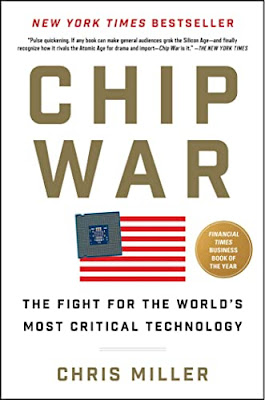
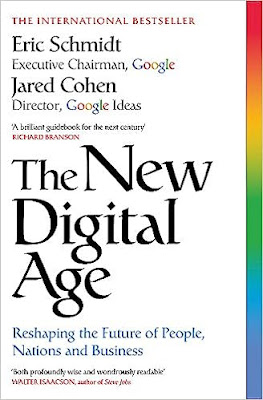
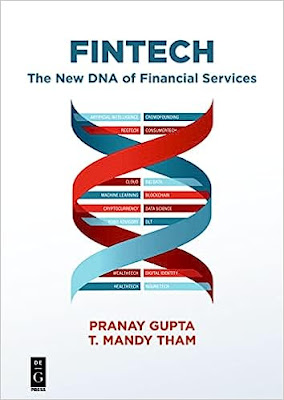


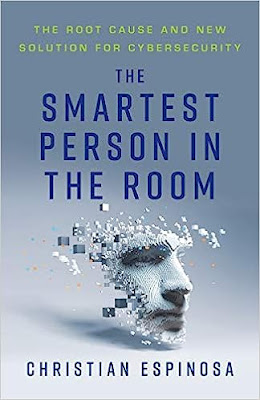
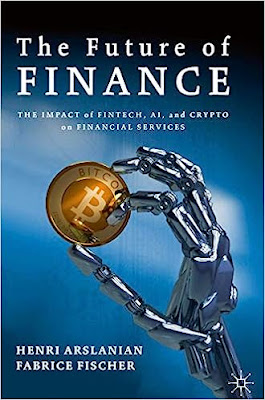


Comments
Post a Comment
Thanks for leaving comments. You are making this discussion richer and more beneficial to everyone. Do not hold back.